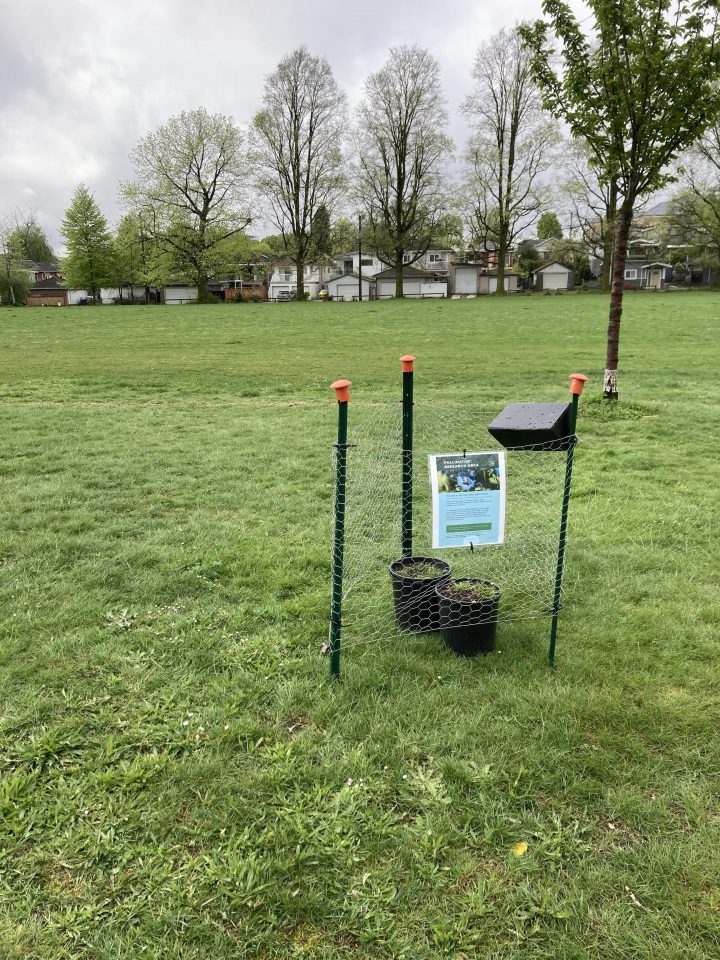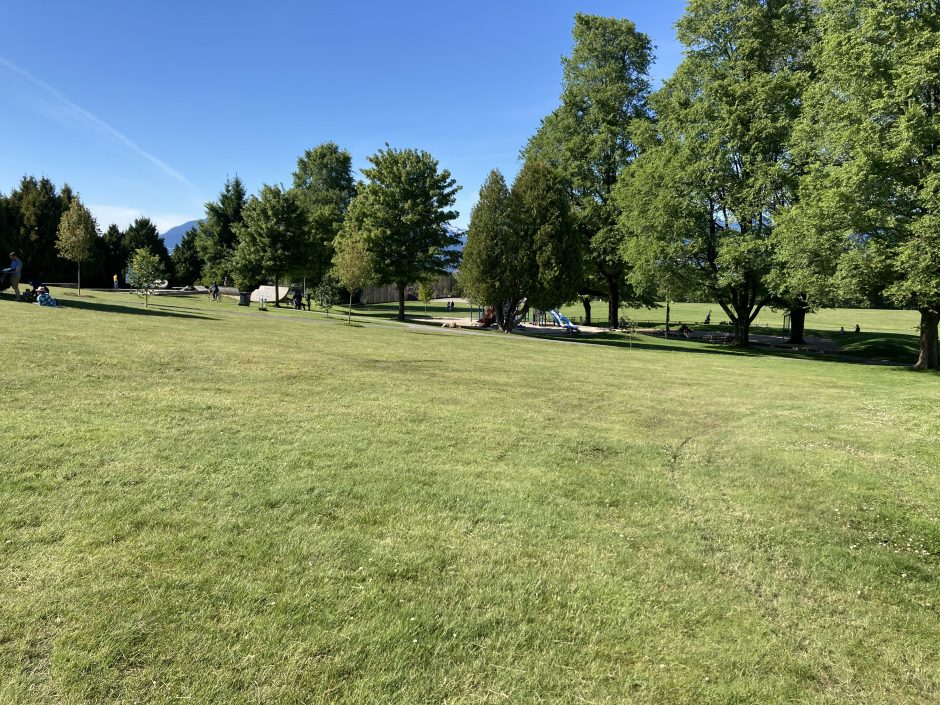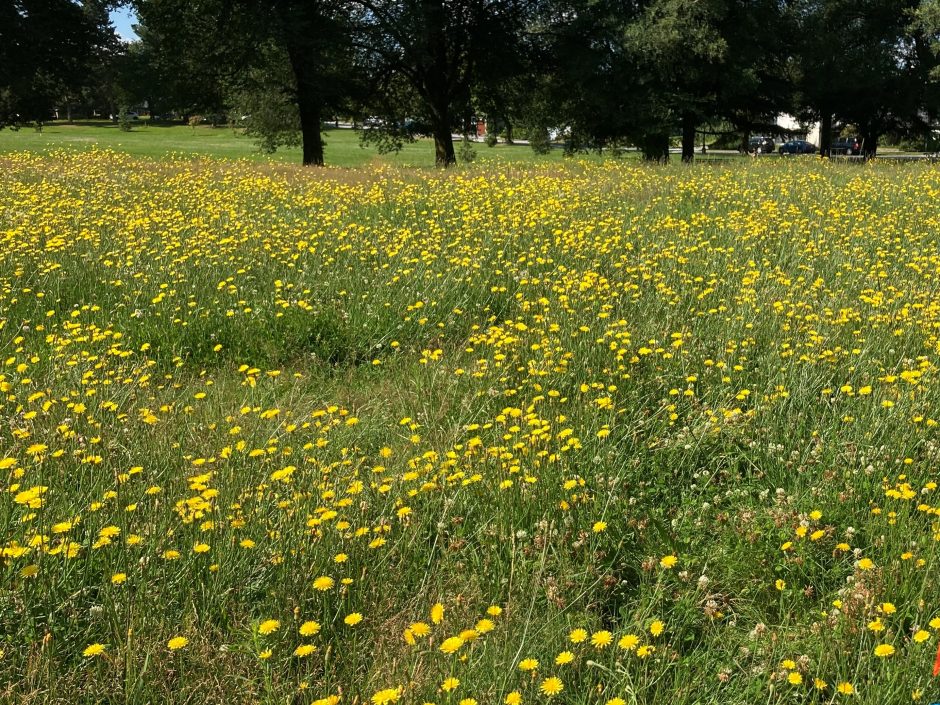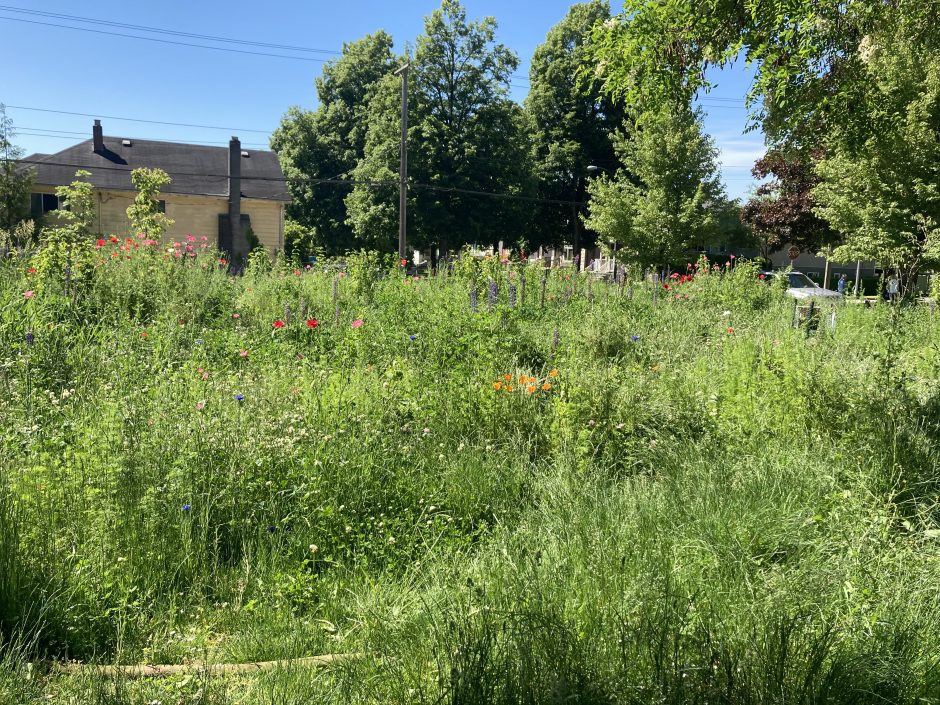
Current Projects
Assessing the benefits of farmland perennial plantings on bumble bee colony health and survival

Yao Yao
PhD student
Bumble bees are important pollinators for many crops, contributing significantly to an estimated $3 billion/year of pollination services by wild insects in the US alone. As the most efficient pollinators of blueberries, it’s important that we understand how to best support their populations within the agricultural landscapes of the Lower Fraser Valley.
PhD student Yao Yao aims to assess the role of perennial plantings, such as hedgerows and riparian plantings, in supporting farmland bumble bee populations. She expect that landscapes with a higher cover of perennial features will provide floral resources and refuge from pesticide exposure, resulting in higher colony survival and long term population success.




Mechanisms of Pollinator Decline and Pathways to Recovery

Batoule Hyjazie
PhD student
Pollinator populations declines are driven by multiple stressors including habitat loss, primarily through agriculture. Understanding which conservation strategies are most effective and how specific agricultural practices impact pollinator communities is critical for reversing these declines.
In this project led by PhD student Batoule Hyjazie, our research addresses these knowledge gaps through two complementary approaches: a comprehensive assessment of conservation intervention effectiveness and an investigation of the impacts of agricultural intensity on bumble bee populations across the United States.

Pollinator conservation outcomes vary across habitats and taxa

Several interventions have been proposed as potential solutions for conserving pollinator populations. We identified seven categories of the most common pollinator conservation interventions: floral enhancement, hedgerow supplementation, multi-dimensional diversification, integrated conservation programs, reduced mowing, organic management, and restoration. Using Bayesian meta-analysis, we are comparing the effectiveness of seven of these categories across habitats and taxa. This synthesis will inform evidence-based decision-making and fine-tune conservation strategies.
Impacts of Agricultural Intensity on Bumble Bee Populations
Using an amalgam of data from citizen science and museum collections, we are uncovering the effects of agricultural intensity on bumble bee populations across the United States. To estimate agricultural intensity, we leverage data on a range of agricultural practices, including genetically modified crops (GMOs), crop homogenization, pesticide use, fertilizer use, and irrigation. Using Bayesian hierarchical modelling, principal component analysis (PCA), and econometric causal inference, we assess how specific agricultural practices predict bumble bee abundance and species richness, how agricultural intensity predicts bumble bee abundance and species richness, and the potential causes of bumble bee declines, respectively. Our work will provide key evidence for the macroecological impacts of agricultural drivers impacting bumble bees, inform conservation measures, and update current agricultural practices.
PERCS: Perennial Plant Restoration for Carbon Sequestration in Canadian Agricultural Landscapes

Our interdisciplinary team is funded by the NSERC-SSHRC Sustainable Agriculture Initiative to study the drivers and outcomes of perennial plant restoration for carbon sequestration in agriculture.
Working with our partners, we will explore how restoration can sequester carbon and reduce greenhouse gas emissions in Canadian agriculture through the planting of perennial vegetation. Our work emphasizes the ecological and social benefits of connecting habitat edges in agricultural landscapes for biodiversity, carbon mitigation and productivity.
For more information, visit https://percs.landfood.ubc.ca/
Examining the effects of urban park management on wild bees
We are currently studying the effects of mowing and management practices on wild bees in Metro Vancouver parks. To do this, we are comparing the plant and bee communities in 10 parks that are regularly mowed versus 10 parks that contain un-mowed, semi-natural spaces. To better monitor individual bee health in these environments, we are also tracking survival and reproductive output of wild bees that are nesting in pots of soil and open cavities that have been placed in protected enclosures at each park. By recording bee-plant interactions and by collecting pollen samples from bees in these parks, we will additionally examine the effects of park management on the network of relationships between plant and pollinator communities. Our overall goal is to discover the role of urban land management schemes on wild bee populations and their community dynamics.



